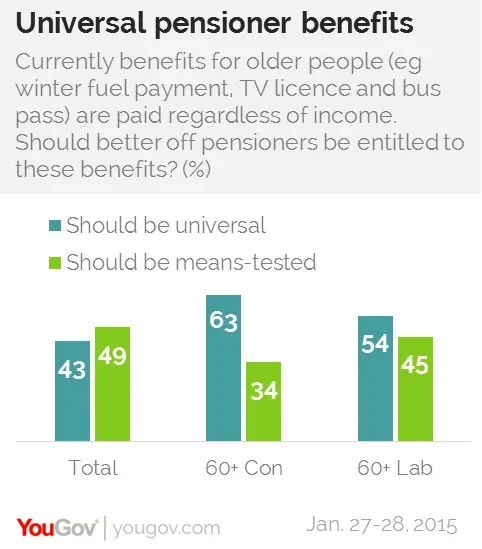Most British people support a reduction in the benefit cap to £23,000 – but there is slight opposition to universal pensioner benefits, and division over scrapping housing benefit for under-21s
David Cameron pledged to reduce the total amount a household can receive in benefits from £26,000 to £23,000 on Tuesday, in a series of interviews marking 100 days until the general election. He said the savings from the changes, to be put into place “within the first few days” of a Conservative victory, would be put towards funding three million apprenticeships by 2020, with further savings coming from scrapping housing benefit for under-21s.
The Prime Minister argued that the previous reduction to the benefit cap, to £26,000, had created a “stampede to the job centre”. New YouGov research finds that the cap has been highly popular, supported by 72%, and the proposed cut to £23,000 is popular too, supported by 61%. But most people (58%) doubt the cap has encouraged those affected to look for work.

David Cameron also suggested that wealthy pensioners would not be targeted in future cuts to welfare benefits. While Labour has committed to cutting winter fuel payments for wealthier pensioners, David Cameron said “there aren’t huge savings to be made from axing these benefits… I don’t think it would be fair to ask pensioners to make the biggest adjustment”.
British people tend slightly to say that currently universal benefits for older people, such as the winter fuel payment, free TV licence and bus pass, should in fact only go to less well-off pensioners, by 49-43%. Even Conservative voters are not completely convinced by universality (44% say the benefits should not go to wealthy pensioners, 51% say they should).
Age is the strongest factor in influencing support for means testing, with older voters the least likely to be in favour. But politics certainly plays a part: 45% of Labour voters over 60 support means testing, compared to 34% of their Conservative counterparts.
Additionally, there doesn’t appear to be too many votes to be won by cutting housing benefit for 18-21 year-olds, with British people divided 42% in favour, 40% against. Housing charity Shelter said: "For the small number of young people who need help while they find work or get back on their feet, this part of the safety net is often the only thing that stands between them and the streets".
PA images







